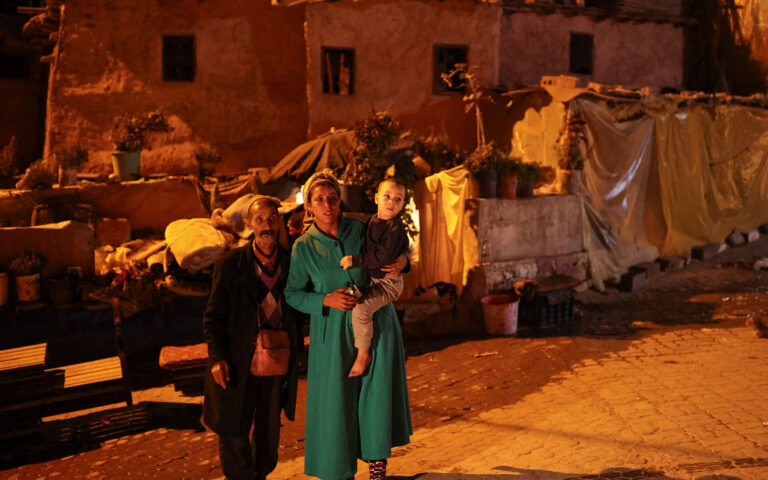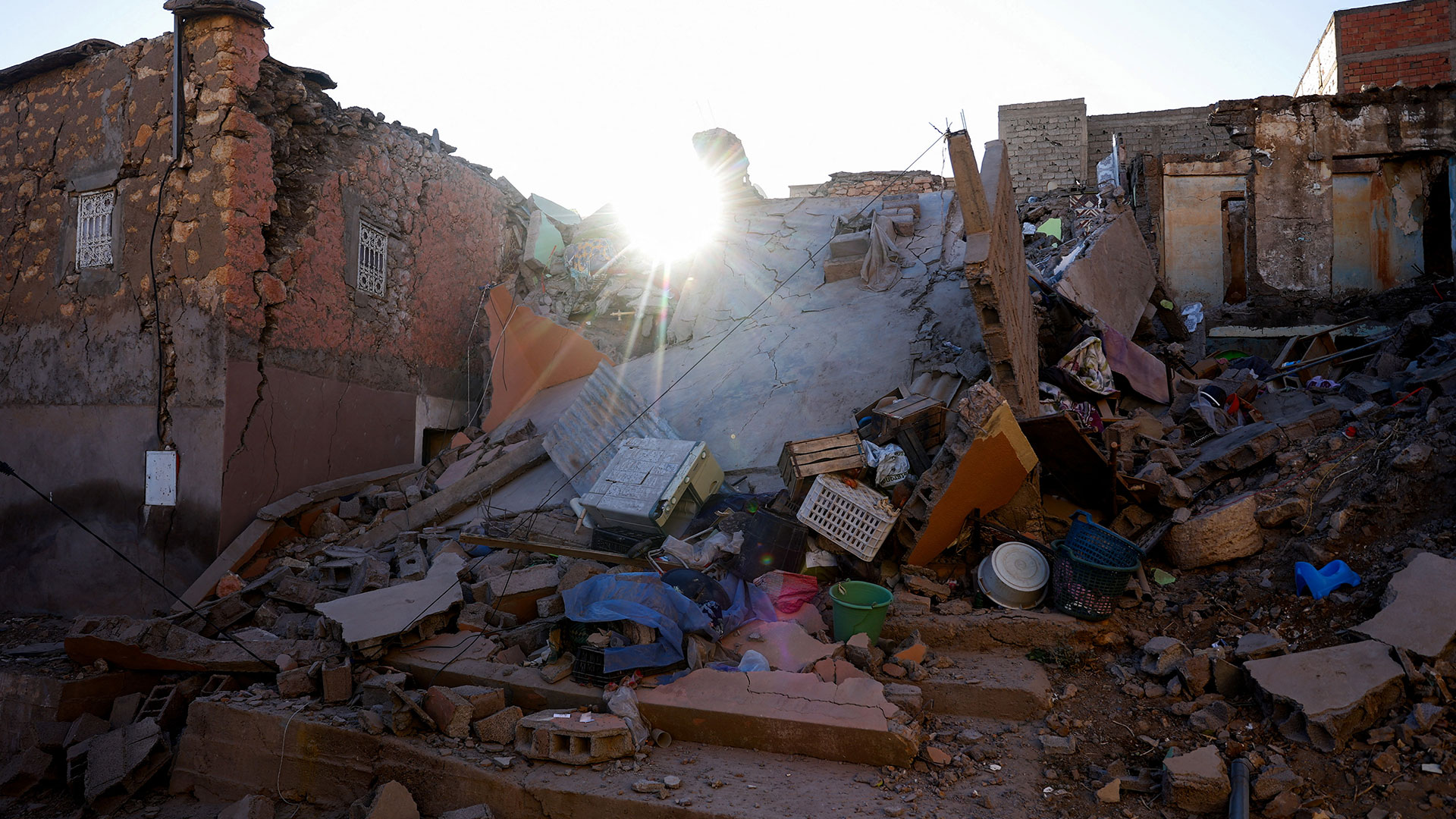Shortly before midnight on Friday, part of the Atlas Mountains in Moroccoshakes, only 72 km from Marrakesh.
The densely populated city and surrounding villages are receiving the devastating force of an earthquake the likes of which had not struck the country for at least a century. 6.8 on the Richter scale leaves one behind The tragic death toll is at least 2,000until Sunday morning when the report is being written.
At exactly the same time – Sunday morning – an Aegean A320 took off from the city’s international airport 108 passengersGreeks and foreigners, following the actions of the Ministry of Foreign Affairs to return the Greeks who were in the affected areas.
“It seemed to me that a century had gone by, and it had never stopped,” she tells K. Nicoletta For the duration of the earthquake, seat belts were put on the plane just before take-off.
Having become acquainted with the internal tremors, the Greek travelers describe, still astonished, the impression of the long duration of the Moroccan earthquake –21 seconds– which forced people to run in panic among the collapsed buildings for a long time until the earth stopped shaking.

“You don’t care what happens on these streets.”
Most of them in AL Madinah AL MunawwarahDowntown, they don’t have cars. They move mainly by motorcycles or carts.
the Elenaa geologist who was visiting Marrakesh as part of the World Geological Congress – UNESCO, describes in “K” photos of local people now living on the street, as temporary housing alternatives are not available to everyone and they do not have vehicles.
“The images we saw afterwards were more violent than the feeling of terror that the earthquake caused you at that time,” he says.
Geologists who were scheduled to participate in the World Geoparks Congress, which was postponed due to circumstances, are not afraid of earthquakes.
“Our earthquake is familiar. The problem is that the buildings do not know what they are. If we were somewhere and knew that the area was resistant to earthquakes, we would not be afraid.”
Some of them remained in the country to help with their scientific training, while others donated blood to dozens of wounded. Elena says it was the least they could do for the people who “despite their pain, they took great care of them.”
“We helped people a lot, even though they were very afraid. They couldn’t call their families, and communications weren’t working for the first ten minutes,” Anna, who regularly visits Morocco for business reasons, told K. “At one point, we went out into a central square after receiving help through the alleys, where the roofs of the buildings were still falling, and we saw very scary scenes. They were all outside trying to call their families. Some were crying, others were screaming, and the motorcycles were going in two directions.” There were old people in wheelchairs, children, and there was panic.”

The need for resilient cities
The earthquake struck like a bolt of lightning the city of Marrakesh. Personal protection methods were not known to many and there was no known plan for the best course of action to follow.
“People have never experienced an earthquake before, and from what they told me the last earthquake occurred Agadir 20 years ago. But in Marrakesh they didn’t know, there was no plan and they didn’t know whether they should stay inside or go out. “There was no evacuation plan,” she says. I.
At the time of the earthquake, Anna was in a mess Restaurant balcony, from those that abound in Medina. The first thing he remembers trying to get out of the building is the wave Dust kicked up debris and swept through the atmosphere In the first minutes after the earthquake.
Her room in the riad – the old buildings characteristic of the city center – was completely destroyed, and the roof collapsed.
With her rolling suitcase, it was nearly impossible to cross the debris-filled alleyways in the area. But it was impossible to find transportation to get away from the center. With a few others, they literally rushed into a taxi, opened the doors and got in without asking.
“It took us about two hours to get out of the main square of the city and approach the new accommodation we had booked,” he says.
The chaos that followed the devastating earthquake has sparked debate among local residents about the resilience of cities to natural disasters. Anna points out that “Morocco, especially Marrakesh, is going through a tremendous stage of development, both at the level of tourism and culture.”
“What some locals were saying today is that the earthquake is a way to clean up all this urban mess. With a tragic cost of loss of life, but perhaps the authorities will be shaken in this way and some anti-seismic rules will be introduced,” he says and concludes: “For us who love Morocco “The earthquake won’t change anything, but I think this is also a sign that we must be able to adapt in natural disasters.”





More Stories
F-16 crashes in Ukraine – pilot dies due to his own error
Namibia plans to kill more than 700 wild animals to feed starving population
Endurance test for EU-Turkey relations and Ankara with Greece and Cyprus